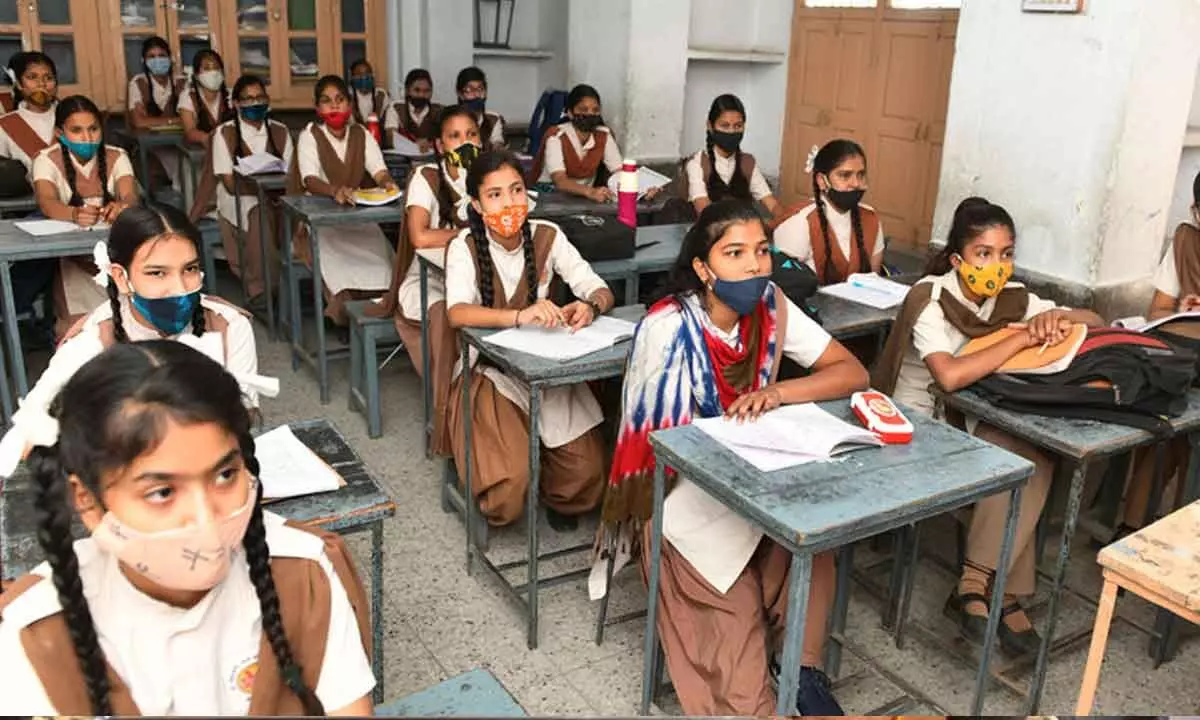Union Budget: Shaping tomorrow’s education through today’s initiatives
The upcoming elections offer an opportunity to renew focus on this vital sector and chart a course for a brighter future of learning for all Indians
image for illustrative purpose

India’s education sector has been on a regulatory overdrive in the last few years. The National Education Policy 2020 set the ball in motion and provided key themes, such as internationalization, skill development and enhancing employability, fostering research, innovation and entrepreneurship, learning outcome-based teaching methodology, technology integration and digital empowerment. While initiatives around these themes are still in their infancy, the key factor will be timely implementation and adoption by stakeholders with the right outlook.
School Education
The landscape of school education has undergone a sweeping transformation, embracing digitization via platforms such as DIKSHA, introducing vocational programmes and launching the National Curriculum Framework for School Education (NCF), along with faculty training initiatives. These measures aim to align education with the demands of the 21st century. Additionally, a framework for the Early Childhood Care and Education curriculum was introduced, highlighting a student-centric approach through play-based learning-teaching methods.
While these advancements are commendable, concerted efforts are crucial to ensuring their effective implementation on the ground. Beyond enhancing faculty skills, it is imperative to devise a strategy for creating a pool of newer faculty and their seamless integration into the ecosystem, addressing the alarming shortage of approximately 1 million schoolteachers in India, as emphasized in UNESCO’s State of Education Report for India, 2021. From mental health perspective, there is an imminent need to introduce periodic assessment framework rather than relying solely on one-time examinations. Customizing learning programmes to incorporate project-based learning, digital integration in early learning/foundational literacy, and adopting blended learning models that identify students' strengths, can significantly enrich the education landscape.
Higher Education
Significant regulatory developments have marked the higher education landscape, particularly with respect to internationalization. IFSCA regulations to enable establishment of foreign higher education institutions (FHEIs) branch campuses in Gujarat's GIFT City, University Grants Commission (UGC) regulations to facilitate the establishment and operation of campuses of FHEIs anywhere in India, regulations promoting twinning, joint degree, and dual degree programs to encourage academic collaboration between Indian and FHEIs, are some exemplary initiatives towards this cause.
Is there a need for more work here? Yes, there is. Budget announcements in 2020 mentioned that FDI and foreign currency loans will be enabled for the sector. This is yet to see the light of the day. Cumbersome and long clearance processes under Foreign Contribution Regulation Act for receiving donations/grants from foreign sources needs to be streamlined significantly. These hurdles are significant as HEIs require capital for building better infrastructure (physical and digital), quality faculty recruitments, setting up greenfield campuses and ramping up academic curriculum with specialized labs.
Also, IFSCA regulations for FHEIs in GIFT City require fee payments in foreign currency. INR payments help reduce the financial burden on students/parents which otherwise arises on account of converting to foreign currency.
Clarifying these issues timely is the key!
To provide a strategic long-term outlook for achieving academic and research excellence, HEIs should put in place an Institutional Development Plan. UGC had released draft guidelines in this regard last year. Additionally, UGC is also poised to unveil Minimum Mandatory Disclosure Guidelines for universities and HEIs to put information on their website, thereby improving transparency in the system and for students and parents to make informed decisions for admissions. Necessitating a prompt implementation of these measures will enhance quality and transparency in the sector.
Research, Innovation and Digital Education
India's research and development (R&D) expenditure is notably one of the lowest globally, compared to the world average of approximately 1.8 per cent. A significant step towards fortifying the research ecosystem was the enactment of the Anusandhan National Research Foundation Act, 2023. The legislation aims to foster collaboration, facilitate the development of research infrastructure, and incentivize increased R&D spending. However, the crucial aspects of operationalizing the NRF, establishing a fund-collection mechanism from various stakeholders, and outlining the procedure for fund allocation to both public and private sectors, require careful consideration. Questions surrounding industry collaboration with public and private institutions, and government, and the metrics for measuring research outcomes also necessitate thoughtful deliberation. Government support is therefore vital for transforming HEIs into research centers and fostering collaboration with startups.
Budget 2022-23 also announced the setting up of the National Digital University (NDU) offering personalized online courses, enhancing accessibility and flexibility in skill education. A prompt establishment of the envisioned NDU is essential for broadening skilling outreach, enabling adaptable learning for students and contribute towards achieving the GER target of 50 per cent by 2035 as set out in the NEP. To ensure comprehensive stakeholder involvement, an operational framework must be established, allowing participation from public, private, and EdTech entities to align skilling initiatives with market demands.
In addition to the mentioned initiatives, there should be a focus on integrating advanced technologies such as Gen AI, Robotics, and Blockchain into the curriculum. Enhancing learning through immersive experiences with Metaverse, Augmented Reality (AR), and Virtual Reality (VR) is crucial, further necessitating faculty and individual upskilling. Educational content should align with real-world applications and hands-on projects.
Conclusion
Given the impending Parliamentary elections, the Budget session next month will be an interim budget only. Strategic directions for the sector will follow post the General Elections - something to look forward to for all the education ecosystem stakeholders!
(Sahil Gupta, Partner, and Guncha Prakash, Senior Executive, at Deloitte Touche Tohmatsu India LLP)

